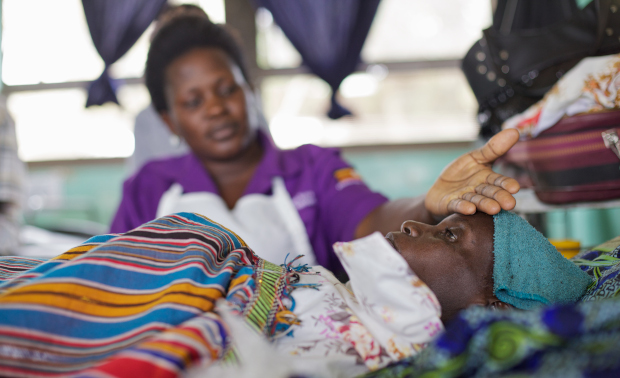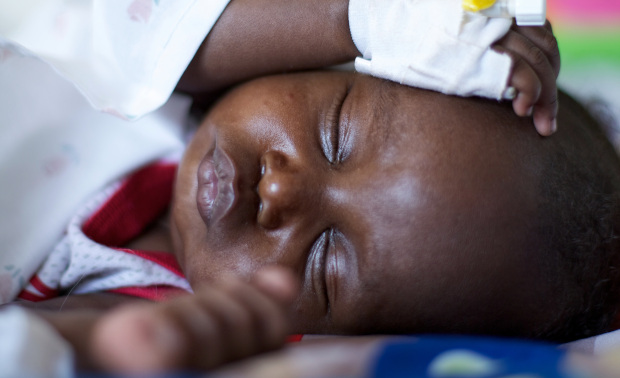
Cancer Access Partnership is expected to result in a 59% savings on cancer medicines
ACS and the Clinton Health Access Initiative (CHAI) today announced agreements with pharmaceutical companies Pfizer, Novartis, and Mylan to expand access to 20 lifesaving cancer treatments in 26 countries in sub-Saharan Africa and Asia. Purchasers are expected to save an average of 59% for medicines procured through the agreements.

The countries included in the agreements are: Botswana, Cameroon, Eswatini, Ethiopia, Ghana, Ivory Coast, Kenya, Lesotho, Liberia, Malawi, Mali, Mozambique, Namibia, Nigeria, Rwanda, Senegal, Sierra Leone, South Africa, Sudan, Tanzania, Uganda, Zambia, and Zimbabwe, in Africa; and Vietnam, India, and Myanmar in Asia. Oncologists, government officials, and nonprofit organizations in many of these countries contributed to these agreements by sharing information and feedback to the CHAI team.
Medications included in the agreements cover recommended regimens for 27 types of cancer and enable complete chemotherapy regimens for the three cancers that cause the most deaths in Africa—breast, cervical, and prostate. These cancers are highly treatable and account for 38% of cancers in the countries covered in the agreements. The new agreements include both chemotherapies and endocrine therapies aligned to evidence-based guidelines harmonized for sub-Saharan Africa, and expand access to additional formulations, including those essential for treating childhood cancer.
"With cancer cases increasing at such a rapid rate in sub-Saharan Africa, access to affordable cancer treatment that meets the quality standards set by a stringent regulatory authority is imperative," said Bill Cance, our chief medical and scientific officer.
In 2018, there were an estimated 811,000 new cases of cancer and 534,000 deaths from cancer in the region. Cancer patients in sub-Saharan Africa are twice as likely to die as those in the United States, often due to late diagnosis and lack of access to treatment. Based on population aging alone, annual cancer deaths in sub-Saharan Africa are projected to almost double by 2030. The new agreements reach 23 countries in Africa, covering 74% of the annual cancer cases.
This new Cancer Access Partnership is an initiative of Allied Against Cancer and an expansion of the Chemotherapy Access Partnership. ACS and CHAI began working together in 2015 to improve care and treatment of cancer in sub-Saharan Africa, working with governments and cancer treatment institutions to address market inefficiencies, improve supply chains, and increase procurement to ensure quality medications were available at affordable prices. This collaboration has shown that access to high-quality cancer treatments can be expanded in a sustainable way.
In 2017, Allied Against Cancer members ACS and CHAI announced agreements with Pfizer and Cipla to expand access to 16 essential cancer treatment medications in six countries in sub-Saharan Africa. The market access agreements secured competitive prices, allowing these governments to realize substantial savings and improve the quality and quantity of treatment available. As a result of the agreements, several African governments and hospitals increased their commitment to procuring necessary cancer medicines by using the cost savings to increase the volumes of medicines procured, setting up innovative systems to supply high-quality cancer medications, and increasing budgets for cancer care and treatment. Countries that accessed products through the agreements saved an average of 56%. As a result, patients have new levels of access to quality chemotherapies in nearly all of the countries included in the original agreements. Three new countries were added in November 2019.
The market access agreements are part of a broader effort to improve access to quality cancer care in Africa. In 2019, ACS, CHAI, the African Cancer Coalition, the National Comprehensive Cancer Network (NCCN), and IBM joined to form Allied Against Cancer. This coalition is leveraging the strengths of each organization to connect with and empower the African oncology community to deliver high-quality cancer care and is working to pursue additional market-based collaborations to increase access to cancer medicines in the region.
NCCN, ACS, and CHAI are also working with the African Cancer Coalition, which comprises 110 leading oncologists from 13 African countries, to adapt the NCCN Clinical Practice Guidelines in Oncology (NCCN Guidelines®) to create the NCCN Harmonized Guidelines™ for Sub-Saharan Africa. These guidelines outline pragmatic approaches that provide effective treatment options to improve the quality of care in resource-constrained settings, and are available free of charge to health care providers. IBM and ACS also developed ChemoSafe, a suite of training resources for regional healthcare personnel to guide the safe transportation, storage, administration, and disposal of hazardous drugs.
*Shared from MySocietySource.
No comments:
Post a Comment